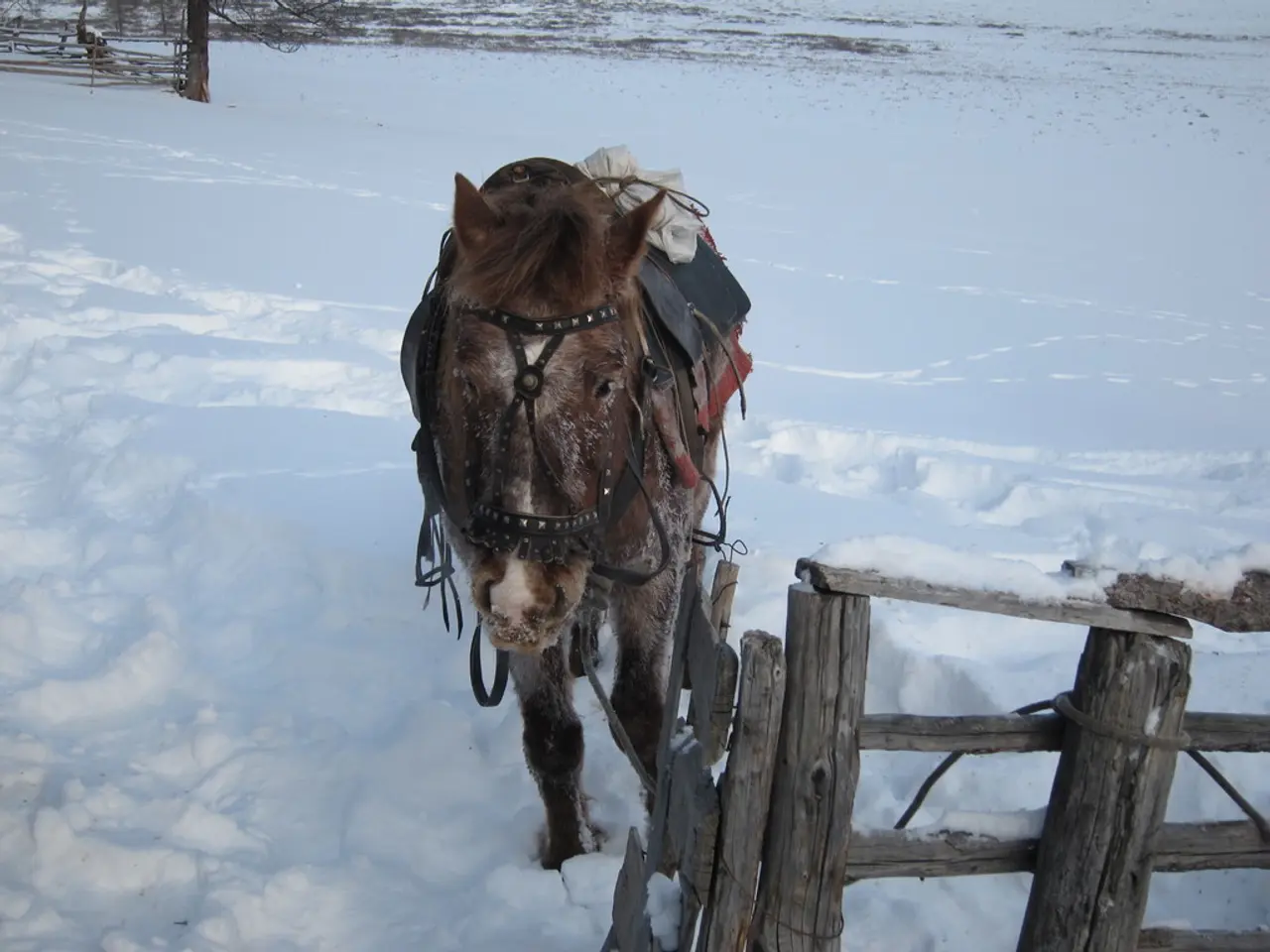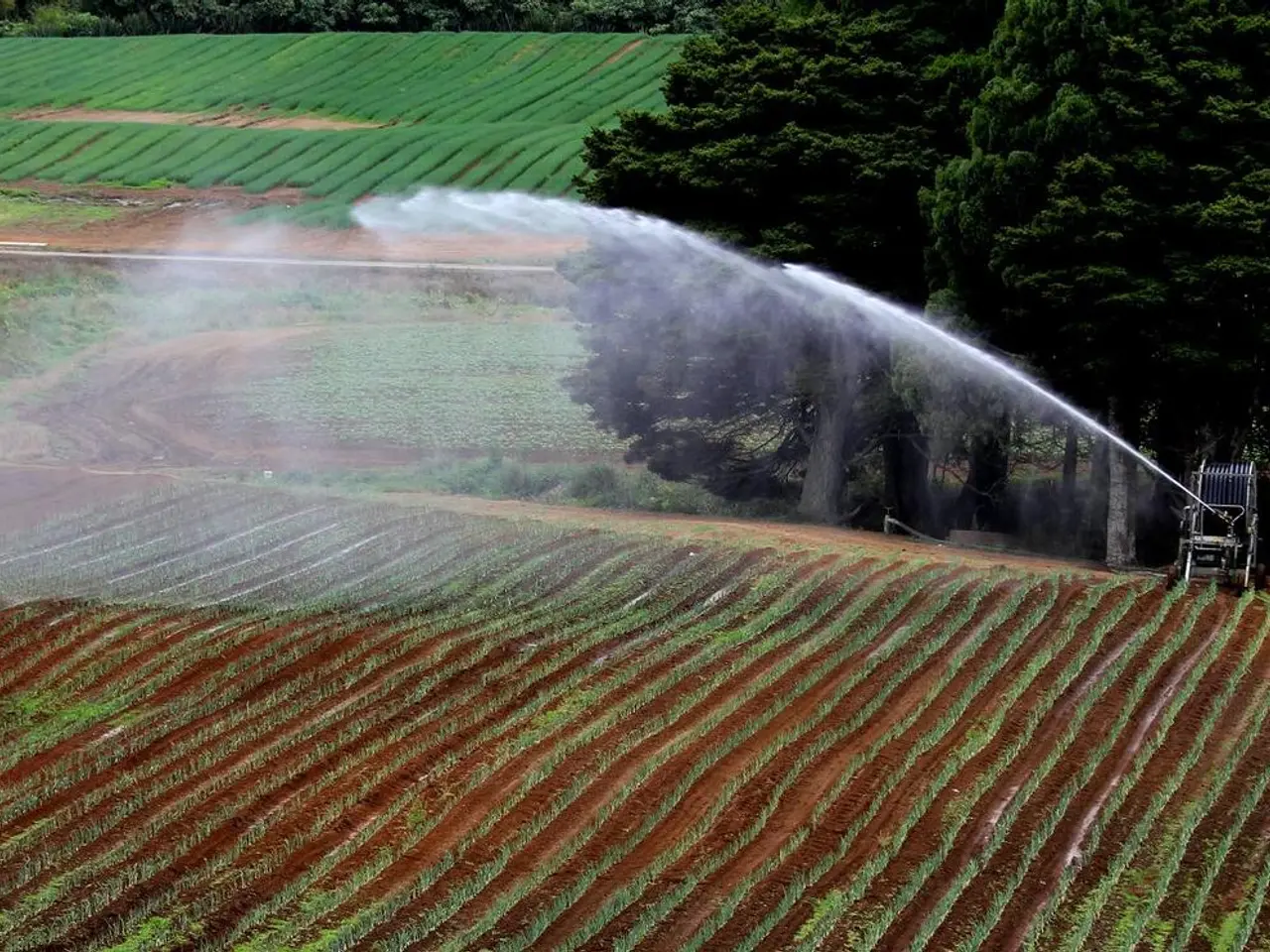Over six million donkeys are slaughtered every year, primarily for the use in traditional Chinese medicine.
Riding on the Backs of Donkeys: The Hidden Toll on African Communities
Imagine a Yemeni boy, balancing precariously on a donkey's back, carting heavy containers of water in a destitute coastal village near Hodeidah. His world revolves around these humble creatures, as do millions of Africans living in rural communities. However, the donkey'sdays might be numbered due to the spiraling demand for donkey skins in China - a demand that's causing severe disruptions and distress among these villages.
China, once home to a thriving 11 million donkeys in 1992, now grapples with a meager 1.5 million population in 2023, all thanks to the booming production of ejiao. This traditional Chinese medicine, marketed as a health supplement containing collagen from donkey skins, is an industry worth a whopping $6.8 billion, according to China-based research firm Qianzhan.
UK-based charity, The Donkey Sanctuary, has blown the whistle, stating, "the ejiao industry drives a massive global trade in donkey skins, much of it illegal." The charity estimates that approximately 5.9 million donkeys were killed worldwide in 2021, with the ejiao trade projected to require at least 6.8 million donkey skins by 2027.
Illegal networks and criminal operations dog the trade, with traders exploiting vulnerable donkey owners. These illicit networks operate without repercussion, often leading to the theft and slaughtering of donkeys in the dead of night. The result: Donkeys dying in inhumane and unsanitary conditions, with many perishing on their way to slaughterhouses.
The human toll is significant. Women and children, who rely on donkeys for farming activities like plowing and transporting goods to market, bear the brunt of this crisis. As donkey populations dwindle, these villages are losing their workhorses and lifelines, further deepening poverty and economic vulnerability.
Moreover, these criminal operations pose serious health risks, as improper disposal of donkey carcasses and untreated skins can trigger the spread of infectious diseases and damage local ecosystems.
Meanwhile, Africa fights back, with the African Union imposing a 15-year moratorium on donkey slaughter to protect these cherished animals. However, the fight is far from over, as the demanding Chinese market shows no signs of slowing down.
This crisis calls for urgent attention and action to safeguard donkeys and the communities that depend on them. The epic story of the Yemeni boy and his donkey represents a fight that extends far beyond a single village, as we endeavor to preserve these hardworking animals and the people who rely on them.
- The escalating demand for donkey skins in China's ejiao industry, a $6.8 billion sector worth of traditional medicine, is causing severe distress among African communities that heavily rely on donkeys for various tasks.
- In the realm of environmental science, the depletion of donkey populations could have dire consequences for rural African communities, particularly in terms of agriculture and business.
- The ejiao trade, fueled by criminal networks, is resulting in the inhuman slaughter of donkeys, posing risks to the health of local populations and threatening the environment through improper disposal of carcasses and untreated skins.
- The finance sector, in its efforts to combat illegal trade, should consider the long-term economic impact of the vanished donkey industry on African communities, as well as the potential health and environmental repercussions.
- Renewable energy solutions could be a viable alternative to lessen the burden on donkeys in rural African communities, thereby mitigating the consequences of the escalating ejiao trade and Chinese demand for donkey skins.




